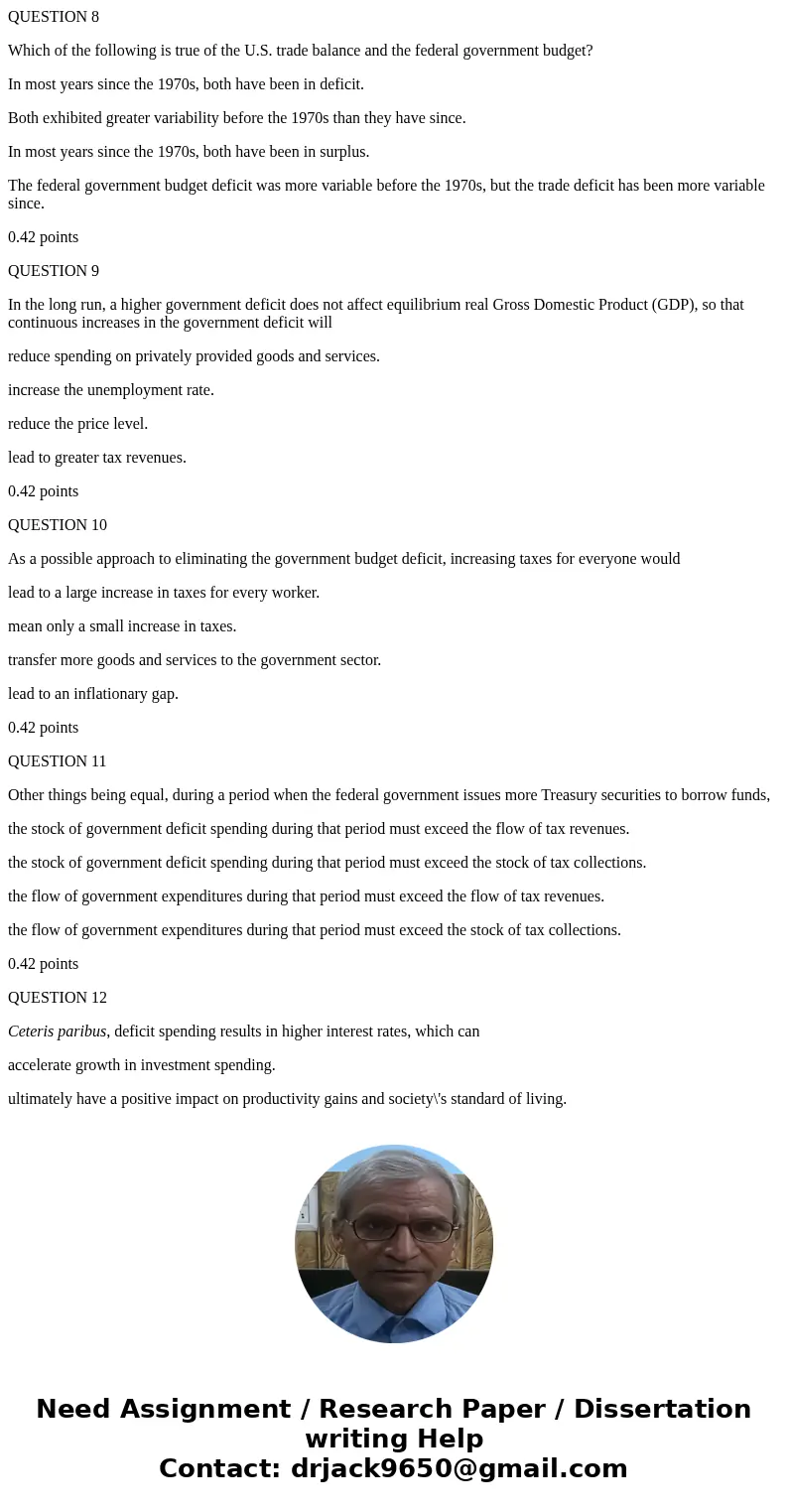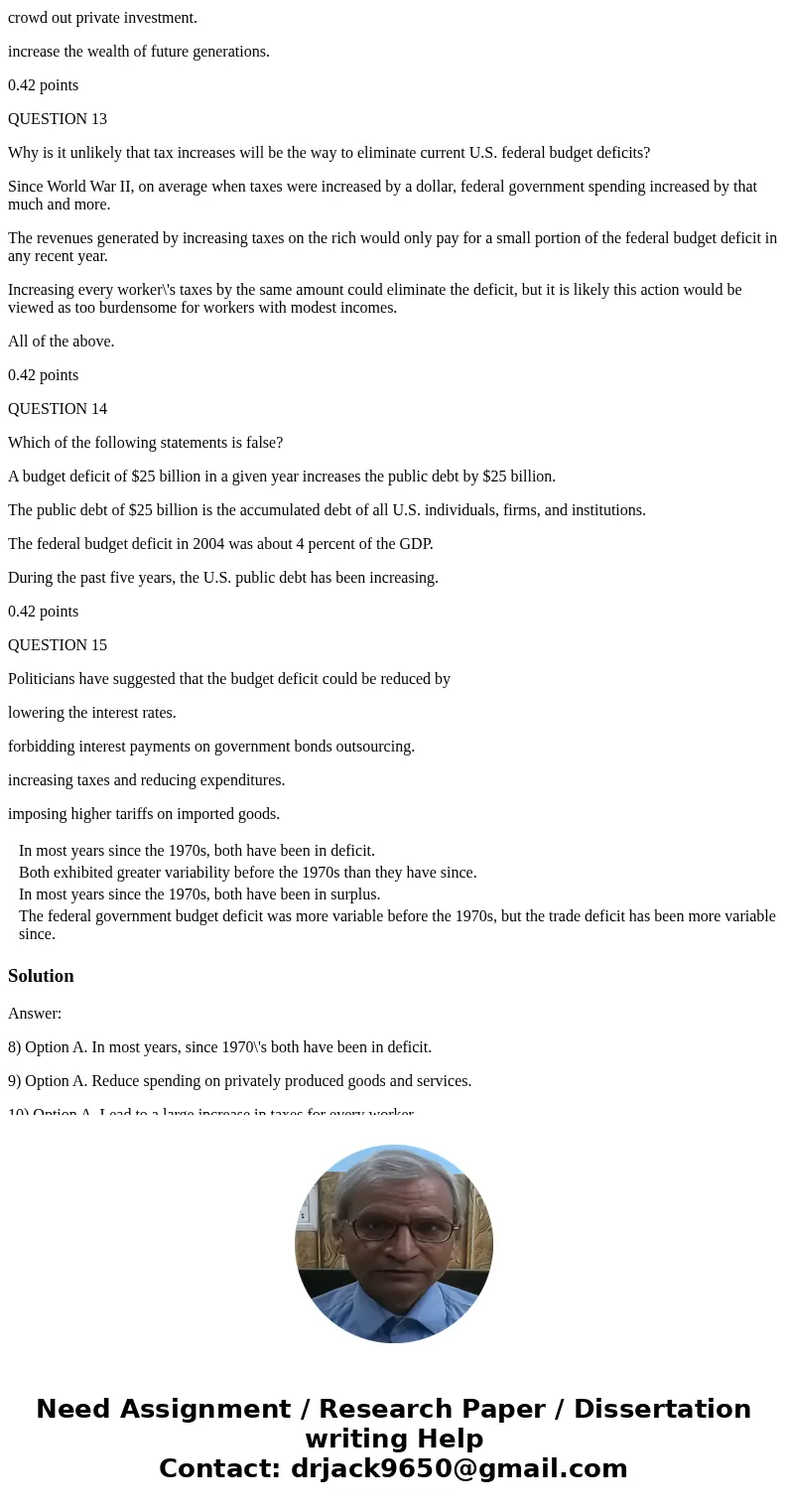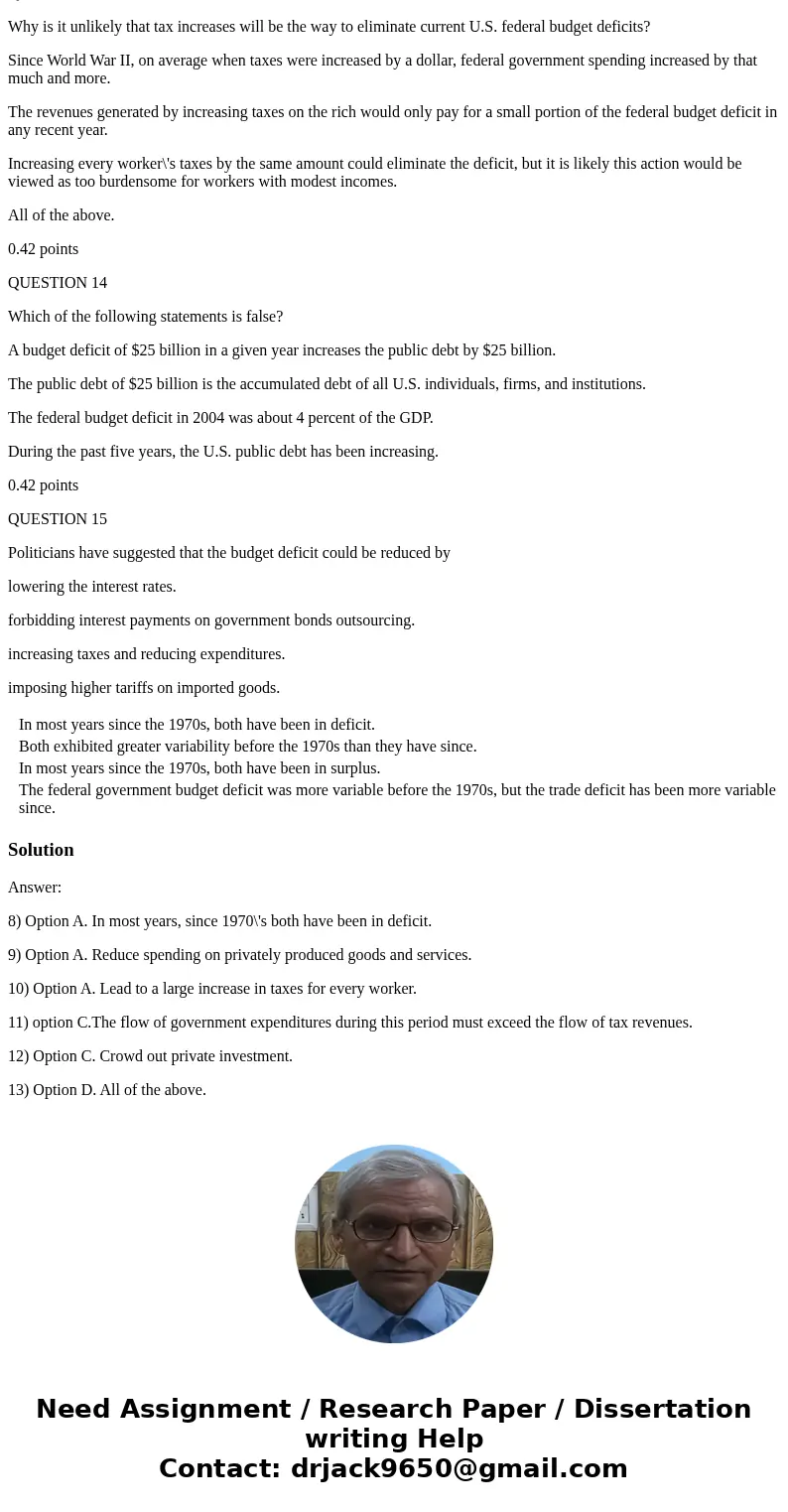QUESTION 8 Which of the following is true of the US trade ba
QUESTION 8
Which of the following is true of the U.S. trade balance and the federal government budget?
In most years since the 1970s, both have been in deficit.
Both exhibited greater variability before the 1970s than they have since.
In most years since the 1970s, both have been in surplus.
The federal government budget deficit was more variable before the 1970s, but the trade deficit has been more variable since.
0.42 points
QUESTION 9
In the long run, a higher government deficit does not affect equilibrium real Gross Domestic Product (GDP), so that continuous increases in the government deficit will
reduce spending on privately provided goods and services.
increase the unemployment rate.
reduce the price level.
lead to greater tax revenues.
0.42 points
QUESTION 10
As a possible approach to eliminating the government budget deficit, increasing taxes for everyone would
lead to a large increase in taxes for every worker.
mean only a small increase in taxes.
transfer more goods and services to the government sector.
lead to an inflationary gap.
0.42 points
QUESTION 11
Other things being equal, during a period when the federal government issues more Treasury securities to borrow funds,
the stock of government deficit spending during that period must exceed the flow of tax revenues.
the stock of government deficit spending during that period must exceed the stock of tax collections.
the flow of government expenditures during that period must exceed the flow of tax revenues.
the flow of government expenditures during that period must exceed the stock of tax collections.
0.42 points
QUESTION 12
Ceteris paribus, deficit spending results in higher interest rates, which can
accelerate growth in investment spending.
ultimately have a positive impact on productivity gains and society\'s standard of living.
crowd out private investment.
increase the wealth of future generations.
0.42 points
QUESTION 13
Why is it unlikely that tax increases will be the way to eliminate current U.S. federal budget deficits?
Since World War II, on average when taxes were increased by a dollar, federal government spending increased by that much and more.
The revenues generated by increasing taxes on the rich would only pay for a small portion of the federal budget deficit in any recent year.
Increasing every worker\'s taxes by the same amount could eliminate the deficit, but it is likely this action would be viewed as too burdensome for workers with modest incomes.
All of the above.
0.42 points
QUESTION 14
Which of the following statements is false?
A budget deficit of $25 billion in a given year increases the public debt by $25 billion.
The public debt of $25 billion is the accumulated debt of all U.S. individuals, firms, and institutions.
The federal budget deficit in 2004 was about 4 percent of the GDP.
During the past five years, the U.S. public debt has been increasing.
0.42 points
QUESTION 15
Politicians have suggested that the budget deficit could be reduced by
lowering the interest rates.
forbidding interest payments on government bonds outsourcing.
increasing taxes and reducing expenditures.
imposing higher tariffs on imported goods.
| In most years since the 1970s, both have been in deficit. | ||
| Both exhibited greater variability before the 1970s than they have since. | ||
| In most years since the 1970s, both have been in surplus. | ||
| The federal government budget deficit was more variable before the 1970s, but the trade deficit has been more variable since. |
Solution
Answer:
8) Option A. In most years, since 1970\'s both have been in deficit.
9) Option A. Reduce spending on privately produced goods and services.
10) Option A. Lead to a large increase in taxes for every worker.
11) option C.The flow of government expenditures during this period must exceed the flow of tax revenues.
12) Option C. Crowd out private investment.
13) Option D. All of the above.



 Homework Sourse
Homework Sourse